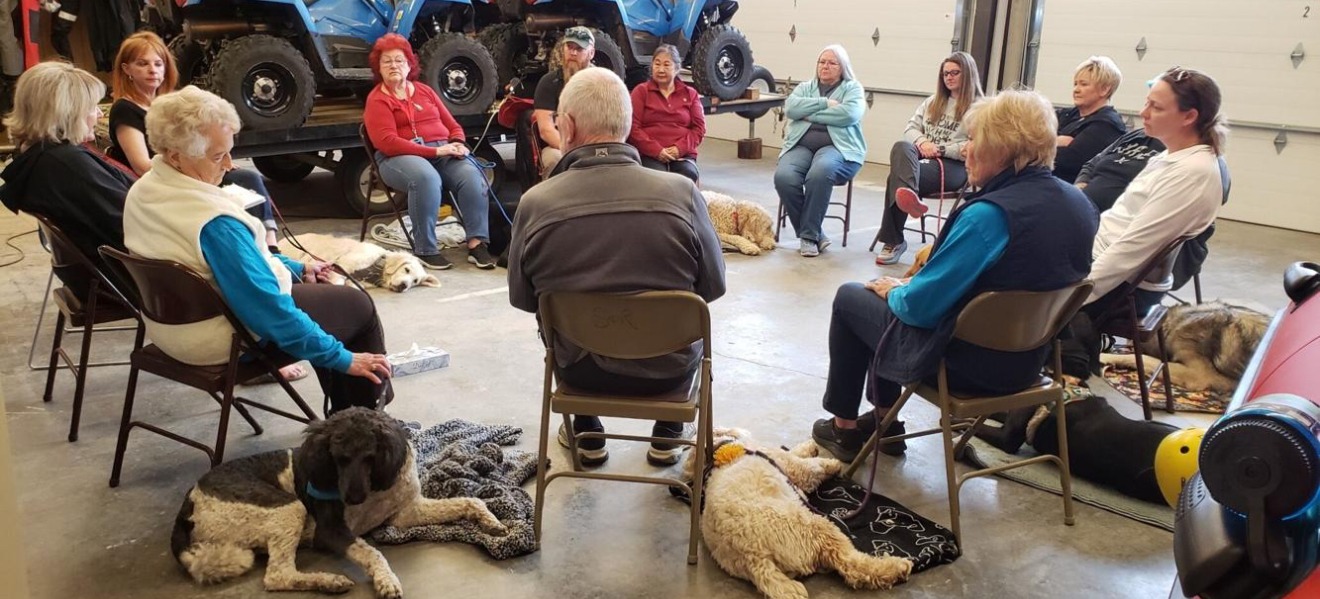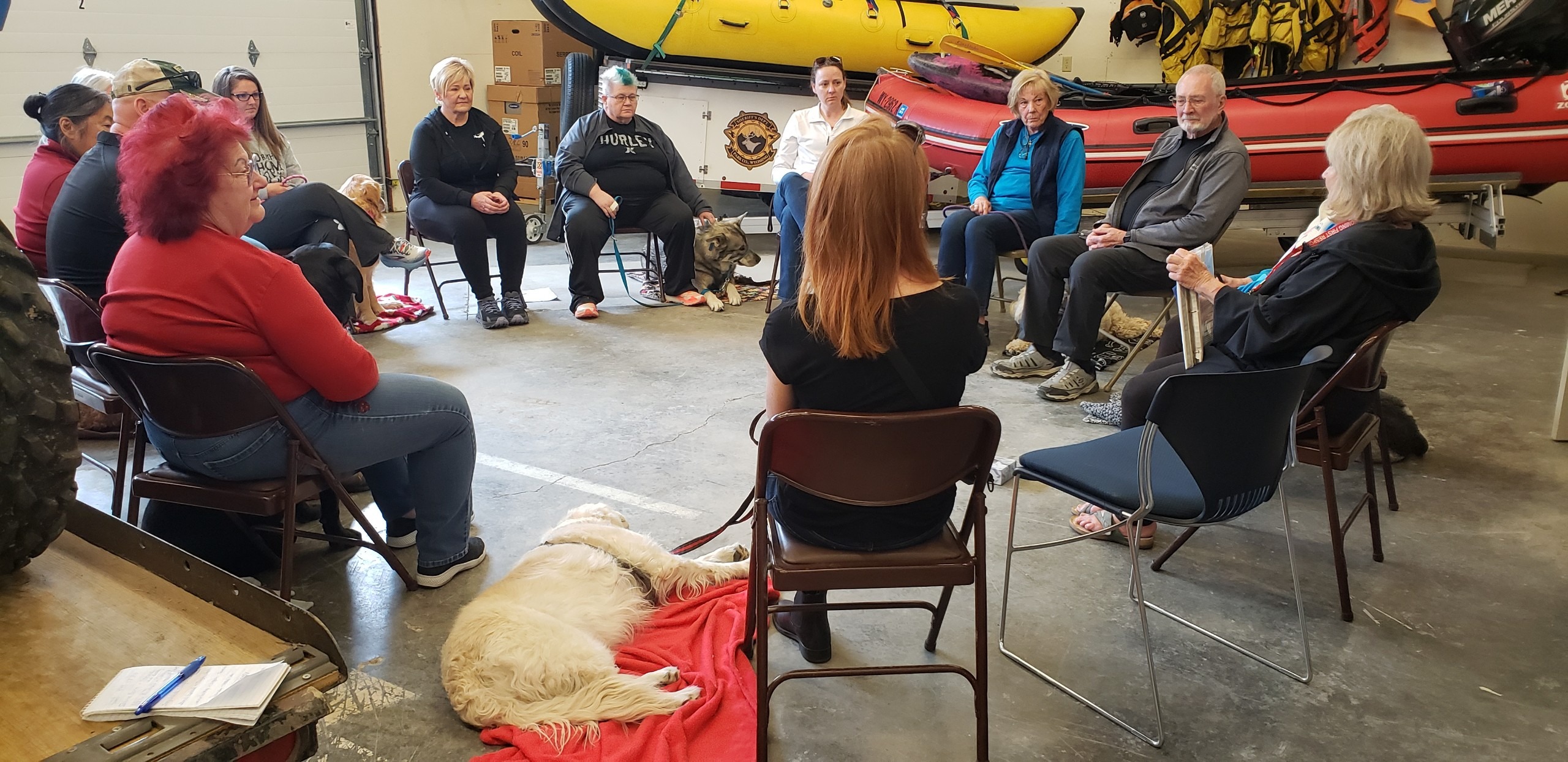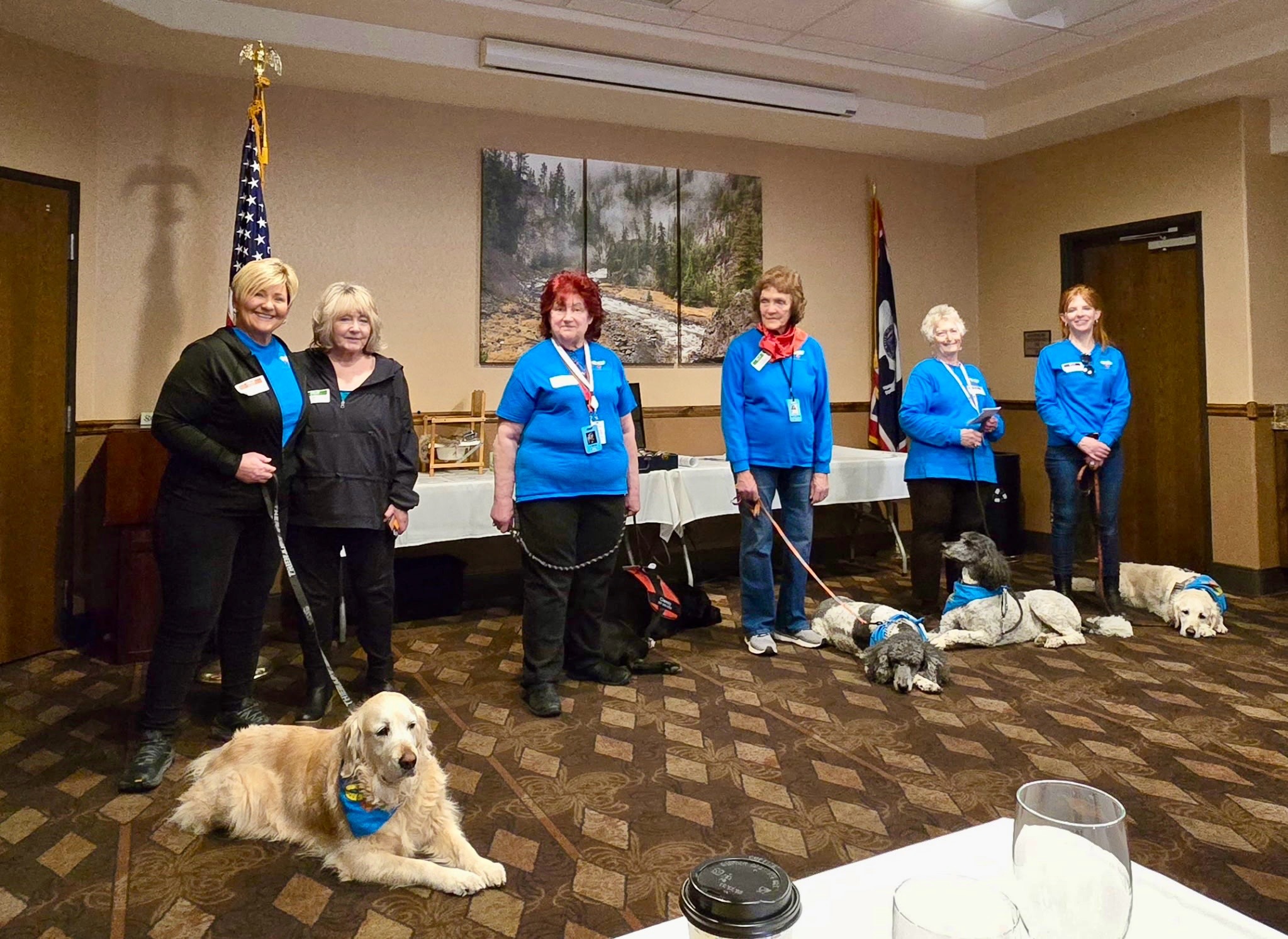CISM (Critical Incident Stress Management)
Under the guidance of retired PCSAR member Linda Waggoner, PCSAR volunteer members and first responders benefit from the availability of the Critical Incident Stress Management (CISM) program. CISM is a formal, highly structured and professionally recognized process for helping those involved in a critical incident to share their experiences, vent emotions, learn about stress reactions and symptoms and given referral for further help if required. After decades of active emergency response, Linda Waggoner has spent the last thirty years dedicated to the development and application of the CISM program in Northwestern Wyoming and in other areas across the western United States. In 2025, funding for the CISM program was generously granted to the Park Co. Search & Rescue Foundation by Christ Episcopal Church/Bargain Box Ministries.
CISM is a comprehensive, integrative, multicomponent crisis intervention system. CISM is considered comprehensive because it consists of multiple crisis intervention components, which functionally span the entire temporal spectrum of a crisis. CISM interventions range from the pre-crisis phase through the acute crisis phase, and into the post-crisis phase. CISM is also considered comprehensive in that it consists of interventions which may be applied to individuals, small functional groups, large groups, families, organizations, and even communities. The 7 core components of CISM are defined below:
1. Pre-crisis preparation. This includes stress management education, stress resistance, and crisis mitigation training for both individuals and organizations.
2. Disaster or large-scale incident, as well as, school and community support programs including demobilizations, informational briefings, “town meetings” and staff advisement
3. Defusing. This is a 3-phase, structured small group discussion provided within hours of a crisis for purposes of assessment, triaging, and acute symptom mitigation.
4. Critical Incident Stress Debriefing (CISD) refers to the “Mitchell model” (Mitchell and Everly, 1996) 7-phase, structured group discussion, usually provided 1 to 10 days post crisis, and designed to mitigate acute symptoms, assess the need for follow-up, and if possible provide a sense of post-crisis psychological closure.
5. One-on-one crisis intervention/counseling or psychological support throughout the full range of the crisis spectrum.
6. Family crisis intervention, as well as, organizational consultation.
7. Follow-up and referral mechanisms for assessment and treatment, if necessary.
(George S. Everly, Jr., Ph.D., C.T.S. and Jeffrey T. Mitchell, Ph.D., C.T.S. The International Critical Incident Stress Foundation)
Trauma Dog Team
In a recent collaboration with local K9 resource teams, the CISM Team will activate K9 resources to add an additional element of support, mitigation, and intervention for emergency responders. CISM Team Coordinator Linda Waggoner and Trauma Dog Team Coordinator Jona Vanata have separated eleven therapy dogs into two groups. These therapy dogs have specific training and experience and are able to provide K9 energy and enthusiasm to those who might find healing and comfort from their presence.
The Trauma Dog Team component has been developed to integrate therapy dog training and experience with additional advanced training for the dog and handler. Additional training is provided through education in Critical Incident Stress and how the dog and handler can add value to the formal Critical Incident Stress Debriefing process. Handlers are given specific training in debriefing including the seven-phase process coupled with an absolute pledge of confidentiality to the individual they are assisting. Handlers also learn how the details of an incident and the stories of, "Life as an emergency responder," may impact them personally. The Trauma Dog Team is also required to perform in a way that does not distract from the flow and engagement by participants during the debriefing. Guidelines and evaluation for both dog and handler have been developed and recurrent training occurs regularly for both the CISM Team and the Trauma Dog Team (first two photos by Buzzy Hassrick/Cody Enterprise & third photo credit unknown).


